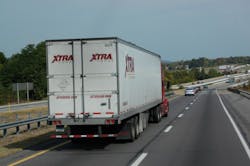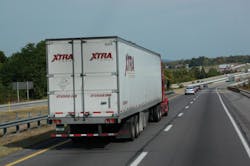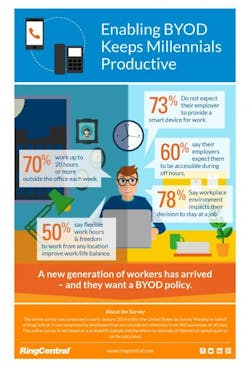The need for new and younger truck drivers is probably one of the more acute parts of the shortage problem as well.
Joel Clum, president of consulting firm Carrier Direct, provided some eye-opening stats in this regard during a conference call arranged by Wall Street investment firm Stifel, Nicolaus & Co., yesterday. To wit:
- Some 56% of the estimated 1.7 million U.S. commercial driver license (CDL) holders are over 45
- About 87% suffer from pre-hypertension or hypertension, a medical term for high blood pressure
- Some 75% are considered obese or morbidly obese
- Driver life expectancy is only into the 60s, versus the 75.96 for the U.S. adult male population on average
- Average pay for dry van drivers in the for-hire segment is $48,000 annually
Those are not the kinds of data that would make anyone want to pilot big rigs for a living.
Yet, at the same time, several surveys show that the Millennial generation – also known as “Generation Y” and encompassing workers born between the early 1980s and the early 2000s – might be “wired” in just the right way to handle the long and often odd-hours environment that hauling freight requires.If motor carriers can make a winning pitch, that is – a pitch that will need, at least according to business communication provider RingCentral, to revolve around flexibility and mobile technology.
In fact, RingCentral’s survey found that he proliferation of mobile technology seems to be eroding away at the very notion of “normal business hours” as some 60% of the Millennials polled say their employers already expect them to be accessible during off hours, while 70% work up to 20 hours or more outside the office each week.
Roughly one-half of Millennials surveyed say flexible work hours and the freedom to work from any location would improve their work/life balance, the firm added.
“In a global economy where business is conducted around the clock, it’s reassuring to employers that Millennials are so willing to be available on a flexible schedule and use their own devices to do so,” noted David Berman, RingCentral’s president. “But, that means it’s our responsibility as employers to provide them with accessibility, solutions, security and freedom to work how and when it’s best for them and the company.”
It’s also going to be a lot more complicated where trucking’s pitch is considered, as smartphone-friendly policies will only get the industry so far down the recruiting path. Yet it’s one more item that’s got to be closely considered as the industry seeks to bring new blood into its ranks.


